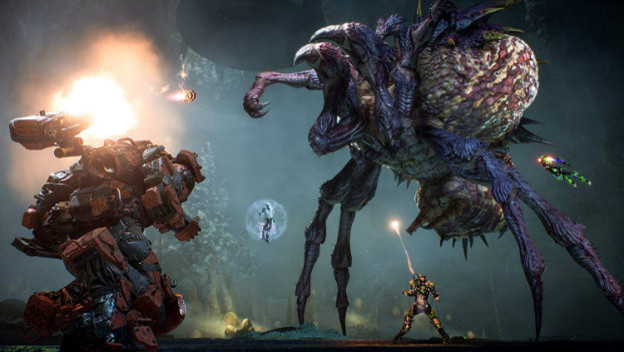There have been two hot topics in 2018. One is crunch, the idea that companies are forcing or leaving their employees little choice but to work 80-hour days. The other has to do with delays, as we had seen a lot of titles slip into 2019. These may seem like separate topics, but the two are quite connected. Basically, we should be hoping and pressuring companies to avoid and abolish crunch, even if it means delays of anticipated titles.
One of the largest titles that was part of the 2018 crunch debate was Red Dead Redemption 2 . Ahead of launch, Dan House, Co-Founder of Rockstar Games, brought up 100-hour work weeks in reference to this installment. While Houser attempted to backtrack, people latched onto this. A subsequent investigation by Kotaku’s Jason Schreier exposed more details. While actual accounts varied, there was no disputing crunch on Red Dead Redemption 2 . People were exposed to inhumane work conditions and forced to work far too many hours on the game. It was not worth it. While this is an exceptional title, the same results could have been achieved if Rockstar had decided to delay it into 2020 and allowed its employees more time to work on it without risking their mental or physical wellbeing.
One of the first things brought up in the investigation notes that Red Dead Redemption 2’ s cinematic letterbox appearance added an additional workload onto developers, because it meant everything already recorded had to be reedited and framed for that specific appearance. While some might appreciate the look, it wasn’t necessary. All it did was add something superfluous on while also overtaxing the people making it. Not to mention bringing such a feature up at a later date showed poor planning on the part of Rockstar Games higher-ups. If such a feature was so important that it needed to be in to improve the artistic quality, it should have been implemented back when those cutscenes were being made. It highlights the issue that executives deciding things and improper management can have a detrimental effect on staff.
This comes after we learned about Telltale Games’ business practices after the studio abruptly shut down and left people with no severance, no health insurance, and no support whatsoever. People who had been fired talked about 80-hour work weeks and being forced to make last minute decisions or narrative choices that did not fit the tone of the games. Clearly we see the detrimental results of crunch here. The company relied upon an old and outdated engine for years. Projects like the second Fables game seemed in a sort of limbo. The Walking Dead: The Final Season is now only going to come out by the grace of Skybound Games.
Even companies that claim to know how bad crunch is and the negative effects it can have on people acknowledge they have problems and need to do better. After the Rockstar Games crunch issues came to light, Ubisoft Quebec bosses began speaking out. In particular, Patrick Klaus said, “We can still always do better, but we have managed pretty well to succeed in delivering a game of huge magnitude which is hitting a good quality [level], while making sure that our teams are not burnt out and disgusted with working in games.” He also noted, “While we can always do better, I can tell you hand on heart that [ Assassin’s Creed: Odyssey ] hasn’t required a massive crunch, like maybe some of the triple-As from five or ten years ago.” When GameSpot spoke to Bethesda’s Pete Hines, ZeniMax’s Matt Firor, and id Software’s Tim Willits, each one mentioned the importance of having balance and not overworking people, but acknowledged periods of crunch in different areas and that these studios are not perfect.

Which brings us to the delay side of things. A lot of these crunch issues could be solved by companies and gamers being more accepting of delays. Anthem is a game that was pushed out of 2018 and into 2019. Kingdom Hearts III, Crackdown 3, and Team Sonic Racing all also were pushed from the one year into the other. All of these made some people upset, because they were excited about these titles. While a lot of these had vague excuses about changing the release schedule to improve the overall quality, imagine if one of these companies had come out and said, “We are delaying Super Hot AAA Title into 2018, because it needs more work and we don’t want to force our team members to work 80-hour weeks to get it out on time.” Wouldn’t that be refreshing? Wouldn’t that make a delay easier to accept than some vague excuse? Yes, there is some risk that a delay could result in people working 80-hour weeks for more time, rather than companies cutting back and being reasonable. But perhaps it is something that should be explored?
A lot of issues we see in the industry could be improved by accepting more delays and taking a big stand against crunch. Full-time employees at a studio should be working 40-50 hours max. We should not be hearing horror stories about 70-100 hour work weeks that result in people’s physical, mental, and social health suffering. We should not feel entitled to products forged under such conditions, just so we can marvel at letterbox presentations or intricate details. No game is worth that sort of suffering. We should fight back against it by standing and saying it is wrong. Moreover, we should go ahead and be more willing to accept delays. We should be more patient about them. If more developers and publishers were willing to accept a delay, rather than force people to work an extra 20-30 hours each week, then maybe we could take a step closer to ending crunch culture. We could see companies employing better time management skills, knowing that dates wouldn’t be set in stone and people could be more patient, if it meant better working conditions for the creators they claim to love. Crunch and delays are intertwined, and we need to become more accepting of delays so we can work toward abolishing crunch.
